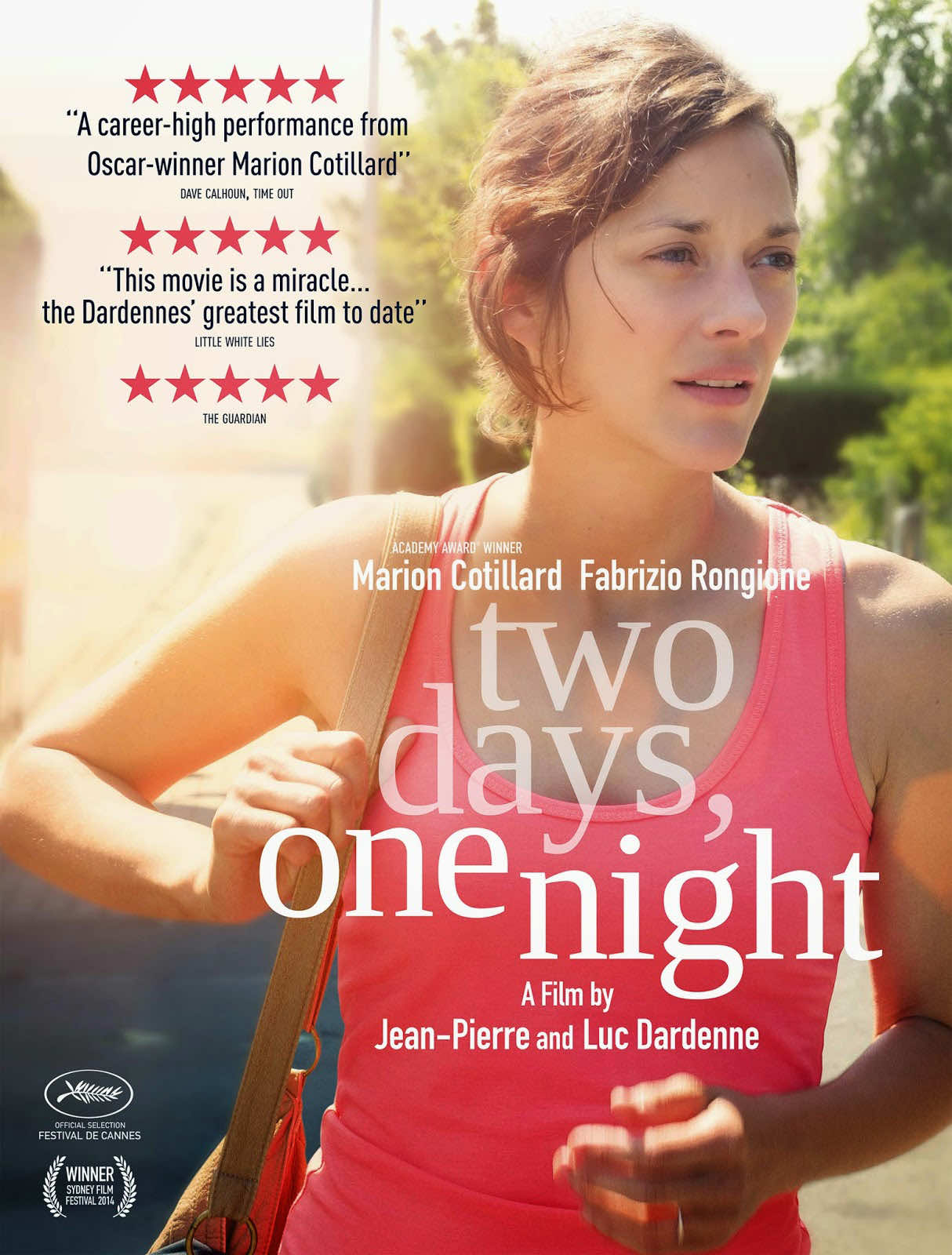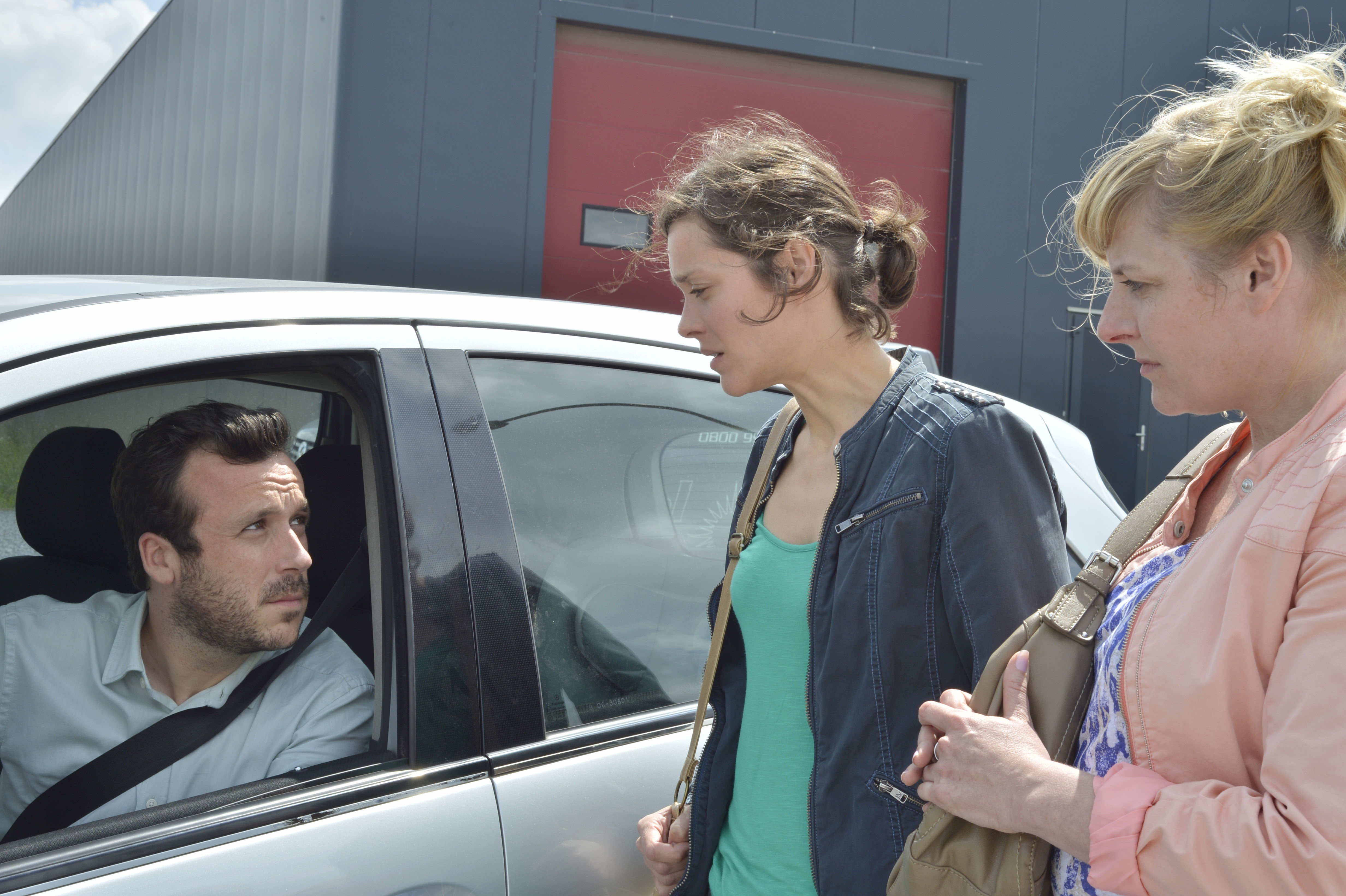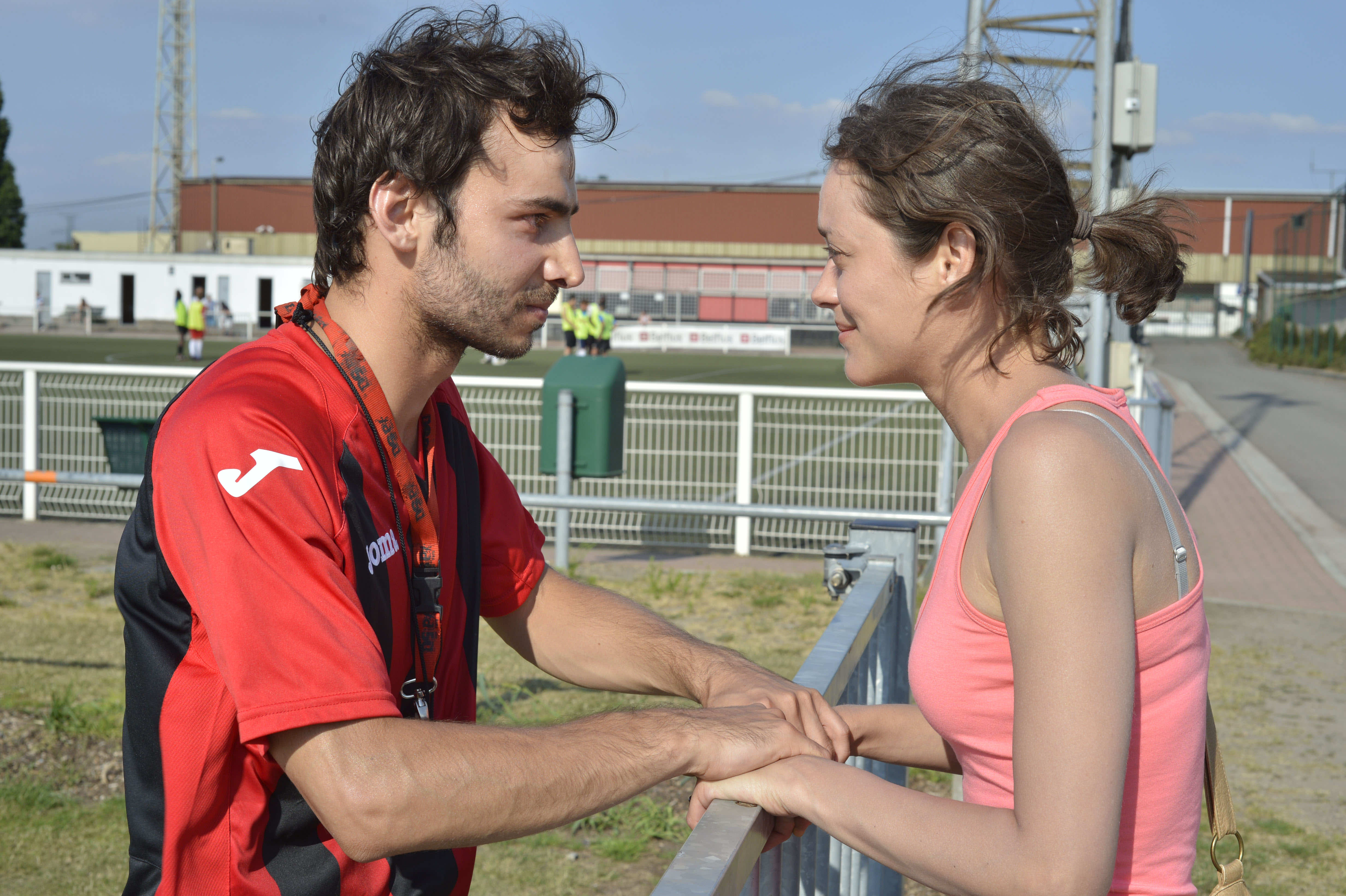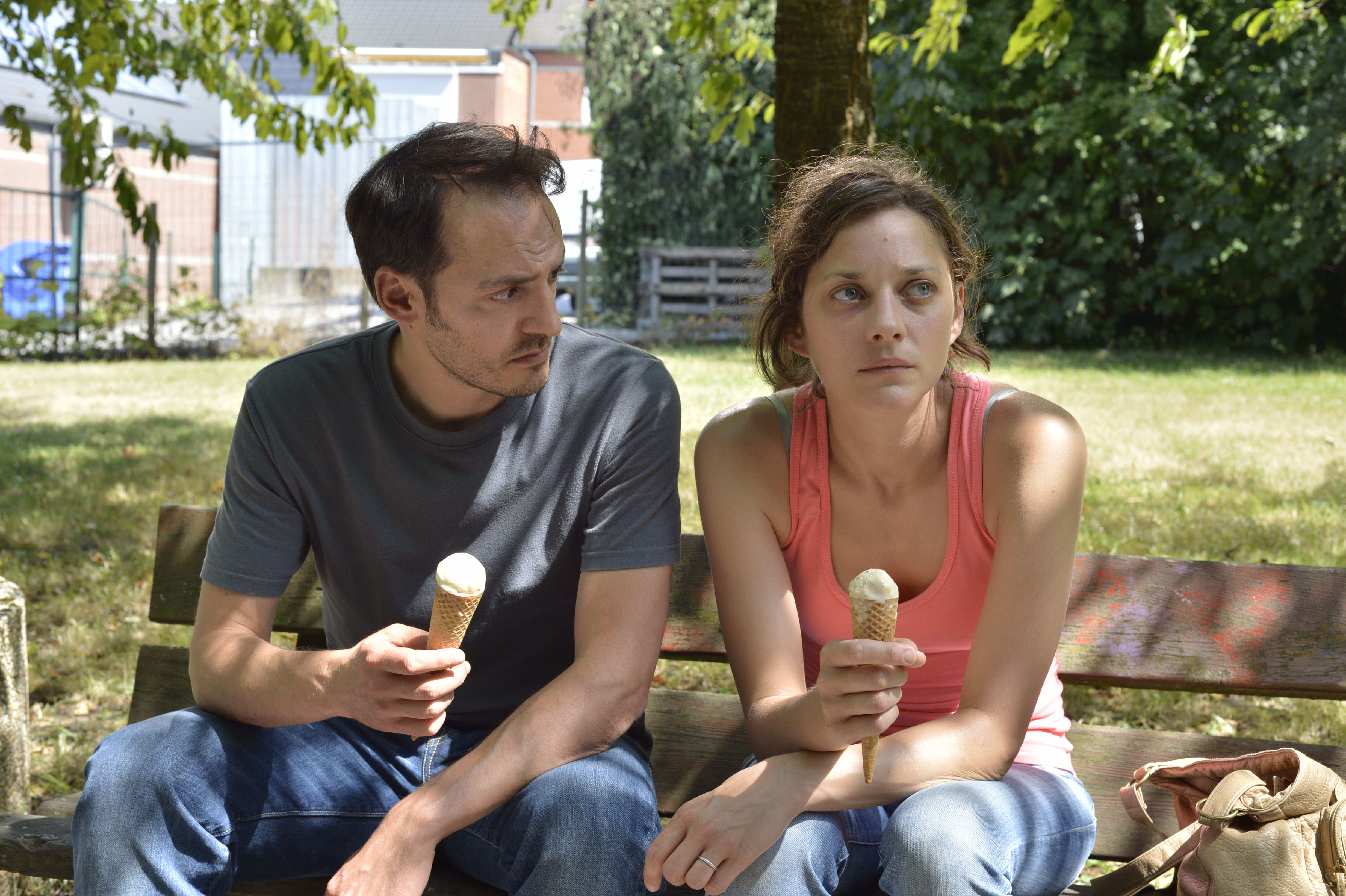 With their new film, Two Days, One Night, the sibling directors Jean-Pierre and Luc Dardenne have stayed true to their spare but powerful aesthetic, using handheld camera, extended scenes often featuring simple framing in two-shots and straight-forward, understated smash cuts to move the story along. In fact, we could start this review by the Belgian brothers just like the last review we published here about their previous film (‘The Kid With a Bike’ harnesses potency of simple filmmaking). However, there are a few subtle changes worth noting in this new film. The Dardennes use no extra-diegetic music this time, and for the first time, they are working with an international star: Marion Cotillard.
With their new film, Two Days, One Night, the sibling directors Jean-Pierre and Luc Dardenne have stayed true to their spare but powerful aesthetic, using handheld camera, extended scenes often featuring simple framing in two-shots and straight-forward, understated smash cuts to move the story along. In fact, we could start this review by the Belgian brothers just like the last review we published here about their previous film (‘The Kid With a Bike’ harnesses potency of simple filmmaking). However, there are a few subtle changes worth noting in this new film. The Dardennes use no extra-diegetic music this time, and for the first time, they are working with an international star: Marion Cotillard.
The actress delivers a marvelous performance that only bolsters the focused gaze of the Dardennes. Wearing minimal if not any makeup, Cotillard delivers a heart-breaking performance as Sandra, a factory worker in Seraing, an industrial town of Liège in Belgium, who, upon her return to work after a medical leave due to depression, faces dismissal from her job. The boss has found a way to streamline work without her and has offered her co-workers to choose between keeping Sandra on the team or receiving a one-time bonus of €1,000. The outcome is exactly what you might be guessing: self-interest prevailed, and the majority of Sandra’s co-workers voted for their own bonus.
A colleague and friend, Juliette (Catherine Salée) convinces Sandra to ask the boss for another vote, as she has received word some of the employees were intimidated to vote for bonuses over Sandra. At first, Sandra appears weak, dubious and hesitant, but bolstered by her friend, who stands at her side, she asks the factory manager to  hold a second vote. It is a Friday evening and the factory owner agrees to hold the re-vote on Monday. The mother of two children, Sandra is also pressured by her husband Manu (Fabrizio Rongione), who works at a budget chain restaurant, to visit her co-workers at home and in some cases their second jobs, to campaign for herself. Should she lose her job, after all, she will go back on the dole, and her family will have to move back into public housing.
hold a second vote. It is a Friday evening and the factory owner agrees to hold the re-vote on Monday. The mother of two children, Sandra is also pressured by her husband Manu (Fabrizio Rongione), who works at a budget chain restaurant, to visit her co-workers at home and in some cases their second jobs, to campaign for herself. Should she lose her job, after all, she will go back on the dole, and her family will have to move back into public housing.
With the intimacy of this story, Two Days, One Night presents an unwavering and heartfelt look at the realities of the European proletariat. With a stagnant unemployment rate in Belgium at 8.5 percent and weak economic growth, the realities of the working class in Belgium seem bleak (some numbers from the National Bank of Belgium). The Dardenne brothers are able to capture the complexity of the labor market while focusing deeply in a single character with an actress in immense control of her talents.
Over the course of time in the film’s title, Sandra tries to hold it together, popping Xanax pills for energy and muttering to herself “you mustn’t cry” on more than one occasion. Cotillard gives a brilliantly modulated performance, and the Dardennes’ distant camera catches the actress genuinely acting, working off other players. As she maintains a strong face in the presence of her work mates, alone and sometimes with her husband, she  seems to barely hold herself together, caving to feelings of despair. When Manu tells her early in the film, in an effort of support, “You exist, Sandra … I love you,” she dynamically takes in his tender reminder of her relevance. She holds on to the positive energy with a tight grip, pauses for a moment to nearly double over in tears, but then composes herself. It reveals how threadbare Sandra’s composure is in the face of the challenge that lies ahead.
seems to barely hold herself together, caving to feelings of despair. When Manu tells her early in the film, in an effort of support, “You exist, Sandra … I love you,” she dynamically takes in his tender reminder of her relevance. She holds on to the positive energy with a tight grip, pauses for a moment to nearly double over in tears, but then composes herself. It reveals how threadbare Sandra’s composure is in the face of the challenge that lies ahead.
Cotillard’s range in just those few seconds is heart-stopping, and it works so well with the reserved, purist style of melodrama by the Dardennes. There’s no need to heighten scenes with music, slow motion, montage or close-ups. As Sandra confronts the various characters she works with, all give an array of reasons for either voting for her or their bonuses. In every encounter with her co-workers Sandra changes a little. Her voice wavers, she re-gains strength and confronts her own fears of not being wanted. The decisions by the Dardennes to keep he camera rolling as she crosses streets or walks paths before facing her co-workers or waiting several beats to cut away at the end of these scenes, as she turns to leave, bring a focus to these small transformations without feeling intrusive or manipulative. You really root for and sympathize with Sandra.
It’s all beautifully shot by the Dardennes’ regular cinematographer Alain Marcoen. The images are often vibrant yet mundane. Again, it’s anti-romantic but movingly raw and real. Sometimes the camera is the editor. To emphasize one rare close-up, which the film earns impactfully when Sandra’s task seems insurmountable, a swish pan to Sandra allows hardly a moment of acting to be wasted. It all dynamically builds up to a moving pay-off that affirms the strength of an individual looking for value in one way but finding it another way. That the Dardennes pull it off so powerfully with such minimal cinematic flourish speaks to their focused storytelling and a major performance by Cotillard. The reflection of life by cinema is rarely this poetic and profound.
—Hans and Ana Morgenstern
Two Days One Night runs 95 minutes and is rated PG-13 for some reason.
Screening update: There’s a series of encore screenings scheduled at the Miami Beach Cinematheque starting March 6.
It first opened in our Miami area Friday, January 16, at the Coral Gables Art Cinema and then expanded to the north in Broward and Palm Beach Counties on January 30th at the following theaters:
- Gateway in Fort Lauderdale
- Cinema Paradiso in Hollywood
- Movies of Delray in Delray Beach
- Movies of Lake Worth in Lake Worth
- Living Room in Boca Raton
- Silverspot in Naples
Update: More South Florida screenings have been scheduled for Friday, February 6th:
- Belltower Stadium 20 in Fort Myers
- MDC’s Tower Theater in Miami
- O Cinemas Miami Beach in Miami Beach
- Hollywood Stadium 20 in Naples
- Movies of Delray 5 in Delray Beach
IFC Films sent us a DVD screener for the purpose of this review.











love
Thanks! 🙂 Hope you get a chance to see it if you haven’t already.
social realism…Liked the movie a lot.
Indeed! This movie goes to show you don’t need to heighten this kind of drama with editing, music and intrusive camera. You do need a good actress, however.
Yes. Dardenne brothers are kind of masters of this type of film process. A boy with a bike has a similar approach towards filming.
Absolutely! We’ve been fans since we saw Rosetta on VHS. The Kid With the Bike was the first time I reviewed a Dardenne film. As I say, I could have repeated what I wrote about how marvelously they control this bare aesthetic, so maybe that’s why we spent so much on Cotillard, but she also is so moving in this film.
Wonderfully written! The Dardenne brothers have once again managed to capture the difficult lives of the working class… and Cotillard was absolutely brilliant as Sandra. One of my favourite films of 2014.
Thank you so much! As it finally arrives to Miami, I’m sure this will stand high on the list of our favorites in 2015.